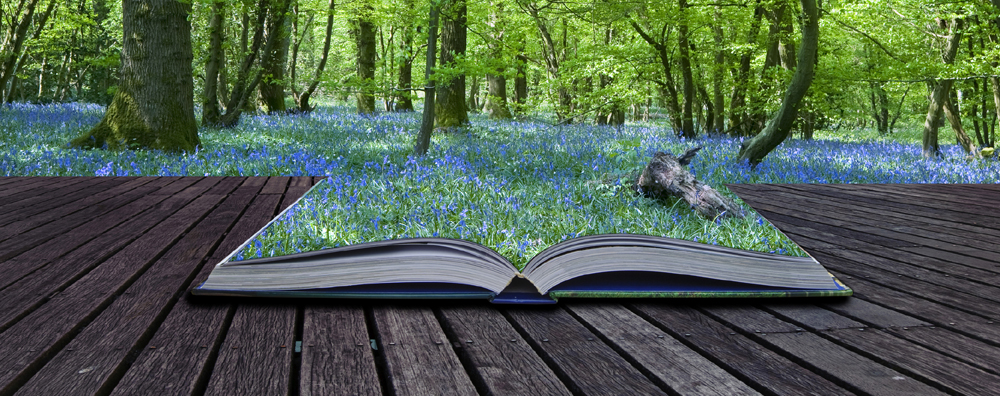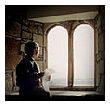Home »
Posts Tagged "MacDonald"
Posted by Anne on Aug 24, 2012 in Naming, Writing | 13 comments
My brother–in–law is a king.
True.
It happened this way: he was involved in aid work in the Philippines. Some villagers asked him to write to the government on their behalf. They wanted the land taken from them back. Privately he thought their chances were nil but he gave it his best shot anyway.
To his surprise the government agreed. The villagers were so delighted they decided to make him their king. My sister travelled with him for the ceremony and asked what it meant to become a ‘datu’. ‘Our datu is our king,’ she was told. ‘He can go to Buckingham Palace and eat cucumber sandwiches with the Queen of England.’ My brother–in–law has not tested the earnest conviction of his loyal subjects on this score, possibly put off by Wikipedia’s insistence a ‘datu’ is merely a petty tribal chief.
read more
Posted by Anne on Aug 14, 2012 in Naming, Writing | 19 comments
My garden has never been the same since the drought of three years ago. The flowers wilted and the rose bushes died and, although we’ve had a flood of rain since, I’ve never got around to replanting them.
One surprising survivor is a cluster of storm lilies that comes up every time there’s a sunshower. A soft blend of translucent cream and lilac, they are—unfortunately—rarely there more than a day. They epitomise to me the wonder of life in all its transience, fragility and beauty.
I have a serious addiction to wonder. It’s probably the reason I’ve never outgrown that child-like asking of, ‘Why?’ Sooner or later, that is the question which leads to a moment of spellbound awe. CS Lewis admitted to the pursuit of joy; for me, it’s wonder.
It was Martin Luther who said, ‘If you truly understood a grain of wheat, you would die of wonder.’
read more
Posted by Anne on Jan 5, 2012 in Writing | 16 comments
Recently, while I was interviewing Andrew Lansdown, he commented he was living proof anyone can learn to write. He claimed that no one could have started out worse than he did. His story drafts were terrible. I laughed and told him I was sure I could still give him a good run for his money.
But, as I’ve reflected on his words, I’ve wondered: can anyone learn to write? Andrew is a poet and as a result I think there’s probably an aspect or two he’s automatically assumed about writing that isn’t necessarily true for everyone.
Most aspiring writers (and sometimes even published ones) seem to believe one of two things:
(1) that great technique—and this includes spelling, grammar, sentence flow, engaging prose, a narrative hook, all the principles of perspective and ‘show, don’t tell’—makes a wonderful book.
(2) that technique is a non–essential—the ideas, the message, the information imparted, the events of the plot (which are subtly different, by the way, to the plot itself) are all–important.
As I receive manuscripts to appraise, I am often struck by the fact that one very critical element is missing in an otherwise excellent text. This ingredient is sometimes missing from my manuscripts, too! George Macdonald said it best: ‘As stories they want the one central spot of red—the wonderful thing which, whether in a…story or a word or a human being—is the life and depth—whether of truth or humour or pathos…that shows the unshowable.’
What stories do you remember? And what makes them memorable? As I asked myself this, I thought of the images, scenes and words from various books that have stayed with me over a lifetime:
read more
Posted by Anne on Dec 30, 2011 in Writing | 14 comments

It’s been a while since my last post. Partly that’s because the comments in Discovered or Invented? were so thought–provoking, I had to pause to reflect for a time on a question I’d never really considered before. Are stories discovered or imagined?
There are aspects to this question I’ve pondered before but I’ve never really looked at it in just that phrasing. And I’m not sure, after considerable thought, that there’s a simple answer to it.
‘To invent [that is, to make a poem] is to come into a knowledge of the unknown thing through the agency of one’s own reason.’ This statement by the medieval grammarian, John of Garland, is cited as an idiosyncratic view by Robert Edwards in Ratio and Invention but, if John is eccentric, then he’s in very good company.
George MacDonald—the great nineteenth century fantasist who influenced CS Lewis, Madeleine L’Engle, WH Auden, JRR Tolkien and EE Nesbit, not to mention yours truly—said: ‘A man may well himself discover truth in what he wrote; for he was dealing all the time with things that came from thoughts beyond his own.’
In his notes to his children’s fantasy, The Moon of Gomrath, Alan Garner wrote: ‘The more I learn, the more I am convinced that there are no original stories. On several occasions I have ‘invented’ an incident, and then come across it in an obscure fragment of Hebridean lore, orally collected, and privately printed, a hundred years ago.’
I’ve often encountered a similar phenomenon in my own stories: scenes that I thought I’d invented out of my imagination turn out to be classic moments from certain northern myths or folktales. Names that I’d made up and then looked for through 27 books without result have subsequently popped up in the age of Google as real names with precisely the meaning I assigned to them. My spelling is often atrocious, as if I’d never seen the name but heard it sounded out in Old Gaelic or Norse and spelt it phonetically. I don’t even find this spooky any longer. Because I’ve noticed that lots of other writers do it as well. They just don’t know they do.
So is the creative process really one of discovery, rather than an exercise of imagination? Are writers explorers, rather than fabricators? I think a lot of us are, particularly in the field of fiction and more especially within the genre of fantasy. There’s a lot of talk in fantasy (and speculative fiction generally) about world–building, but sometimes I wonder: is it truly about creating or about charting an already–existing geography?
read more
Posted by Moderator on Mar 11, 2011 in Feature, Writing | 0 comments
From the exquisite ending of TS Eliot’s poem, Little Gidding, to the purifying petalled flames in George MacDonald’s The Princess and the Goblin or the purging fire in Anne Bartlett’s Knitting, I am utterly entranced with the symbol of the fire of roses.
From time to time, you’ll find the image haunting my own writing…
read more



